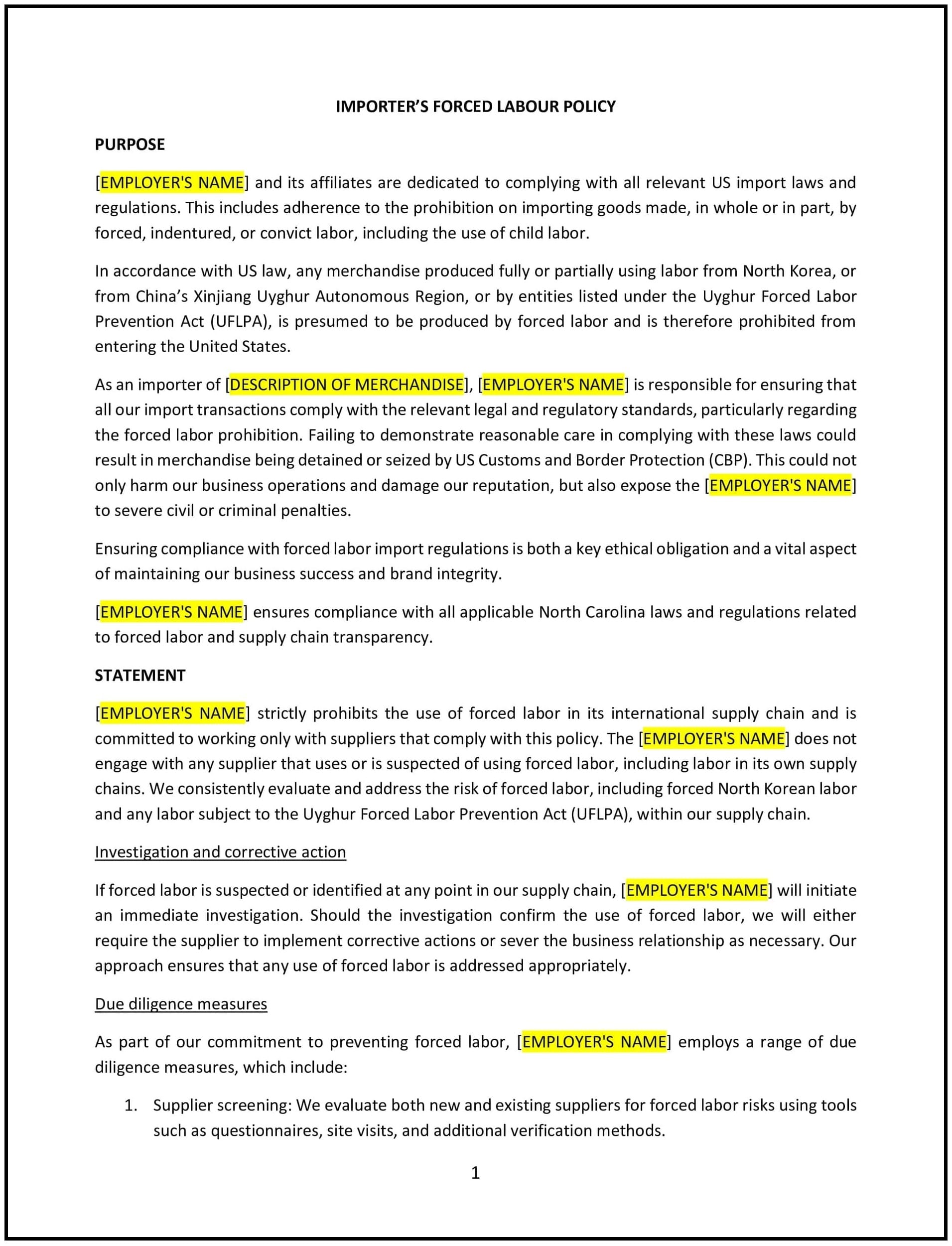Importer's forced labour policy (North Carolina): Free template
Got contracts to review? While you're here for policies, let Cobrief make contract review effortless—start your free review now.

Customize this template for free
Importer's forced labour policy (North Carolina)
An importer's forced labour policy helps North Carolina businesses address the risk of forced labour in their supply chains, especially when importing goods from other countries. The policy outlines the company’s commitment to ensuring that their suppliers do not use forced, indentured, or child labour and that workers are treated ethically and in compliance with both U.S. and international human rights standards.
By adopting this policy, businesses can reduce the risk of human rights violations in their supply chain, comply with federal regulations like the Tariff Act, and demonstrate their commitment to responsible sourcing.
How to use this importer's forced labour policy (North Carolina)
- Define forced labour: Clearly define what constitutes forced labour, including situations where workers are coerced or deceived into working under threat of penalty or violence.
- Assess supply chain risks: Outline the company’s procedures for assessing and mitigating risks of forced labour in its supply chain, particularly with suppliers and manufacturers.
- Require supplier commitments: Specify that all suppliers must commit to adhering to the policy, including providing proof of compliance, such as audits or certifications.
- Establish reporting and accountability: Define how suspected instances of forced labour should be reported and outline the company’s procedures for investigating and addressing such claims.
- Reflect North Carolina-specific considerations: Ensure the policy aligns with North Carolina state laws on labour standards and is consistent with international regulations, such as the UK Modern Slavery Act and U.S. customs regulations.
Benefits of using this importer's forced labour policy (North Carolina)
This policy provides several benefits for North Carolina businesses:
- Ensures ethical sourcing: The policy helps businesses ensure that their supply chains are free from forced labour and that workers are treated ethically.
- Reduces legal and reputational risks: A robust policy protects the company from potential legal consequences and reputational damage resulting from forced labour violations.
- Enhances corporate social responsibility: By adopting this policy, businesses demonstrate their commitment to human rights and responsible business practices, which can improve their public image.
- Supports compliance: The policy ensures compliance with North Carolina’s labour laws and international regulations governing forced labour.
- Promotes supply chain transparency: Encourages transparency in supplier practices and builds stronger, more ethical partnerships with suppliers.
Tips for using this importer's forced labour policy (North Carolina)
- Communicate the policy clearly: Ensure that all employees and suppliers are aware of the company’s commitment to preventing forced labour and understand the steps required for compliance.
- Conduct regular audits: Regularly audit suppliers and the supply chain to ensure that the policy is being followed and that no instances of forced labour are occurring.
- Offer training: Provide training for employees and suppliers on how to identify and prevent forced labour in the supply chain.
- Review the policy regularly: The policy should be reviewed annually to ensure it aligns with North Carolina’s laws, international regulations, and industry best practices.